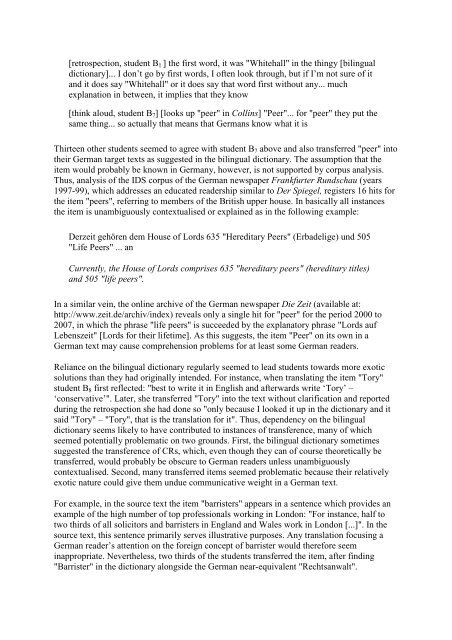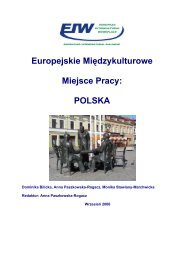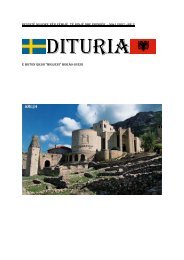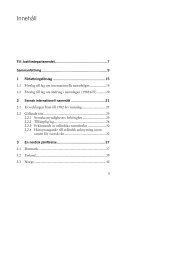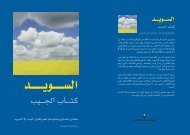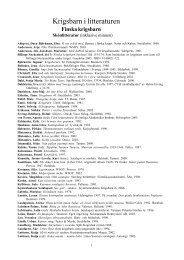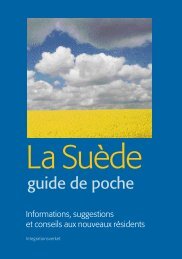Translation, Cultural Knowledge and Intercultural Competence
Translation, Cultural Knowledge and Intercultural Competence
Translation, Cultural Knowledge and Intercultural Competence
Create successful ePaper yourself
Turn your PDF publications into a flip-book with our unique Google optimized e-Paper software.
[retrospection, student B 1 ] the first word, it was "Whitehall" in the thingy [bilingualdictionary]... I don’t go by first words, I often look through, but if I’m not sure of it<strong>and</strong> it does say "Whitehall" or it does say that word first without any... muchexplanation in between, it implies that they know[think aloud, student B 7 ] [looks up "peer" in Collins] "Peer"... for "peer" they put thesame thing... so actually that means that Germans know what it isThirteen other students seemed to agree with student B 7 above <strong>and</strong> also transferred "peer" intotheir German target texts as suggested in the bilingual dictionary. The assumption that theitem would probably be known in Germany, however, is not supported by corpus analysis.Thus, analysis of the IDS corpus of the German newspaper Frankfurter Rundschau (years1997-99), which addresses an educated readership similar to Der Spiegel, registers 16 hits forthe item "peers", referring to members of the British upper house. In basically all instancesthe item is unambiguously contextualised or explained as in the following example:Derzeit gehören dem House of Lords 635 "Hereditary Peers" (Erbadelige) und 505"Life Peers" ... anCurrently, the House of Lords comprises 635 "hereditary peers" (hereditary titles)<strong>and</strong> 505 "life peers".In a similar vein, the online archive of the German newspaper Die Zeit (available at:http://www.zeit.de/archiv/index) reveals only a single hit for "peer" for the period 2000 to2007, in which the phrase "life peers" is succeeded by the explanatory phrase "Lords aufLebenszeit" [Lords for their lifetime]. As this suggests, the item "Peer" on its own in aGerman text may cause comprehension problems for at least some German readers.Reliance on the bilingual dictionary regularly seemed to lead students towards more exoticsolutions than they had originally intended. For instance, when translating the item "Tory"student B 8 first reflected: "best to write it in English <strong>and</strong> afterwards write ‘Tory’ –‘conservative’". Later, she transferred "Tory" into the text without clarification <strong>and</strong> reportedduring the retrospection she had done so "only because I looked it up in the dictionary <strong>and</strong> itsaid "Tory" – "Tory", that is the translation for it". Thus, dependency on the bilingualdictionary seems likely to have contributed to instances of transference, many of whichseemed potentially problematic on two grounds. First, the bilingual dictionary sometimessuggested the transference of CRs, which, even though they can of course theoretically betransferred, would probably be obscure to German readers unless unambiguouslycontextualised. Second, many transferred items seemed problematic because their relativelyexotic nature could give them undue communicative weight in a German text.For example, in the source text the item "barristers" appears in a sentence which provides anexample of the high number of top professionals working in London: "For instance, half totwo thirds of all solicitors <strong>and</strong> barristers in Engl<strong>and</strong> <strong>and</strong> Wales work in London [...]". In thesource text, this sentence primarily serves illustrative purposes. Any translation focusing aGerman reader’s attention on the foreign concept of barrister would therefore seeminappropriate. Nevertheless, two thirds of the students transferred the item, after finding"Barrister" in the dictionary alongside the German near-equivalent "Rechtsanwalt".


